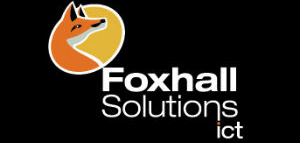We have seen headlines in the last month, revealing that the UK’s power reserves are dangerously low!
“Britain’s energy systems operator said that a recent spate of power plant closures had reduced electricity reserves to just 4.1 per cent — the slimmest margin in eight years.”
This means that we may have to live with that feeling of horror and cry of angst as our computers crash (along with the lights and the coffee machine), just before you were going to save that 20 page report, or send that vital e-mail!
Fortunately there are some safeguards that we can put in place.
1) Set Auto-save on your MS Office app’s:
 The easy ones first! If you use Microsoft Office, you should look at the ‘Options’ menu on each of the applications you use (Word, Excel etc.), and make sure that their ‘Auto-save’ facilities are set, and that you know where auto-save actually puts your documents. Auto-save can mean that if your PC goes through an unscheduled power-outage, you will have a recently saved copy of the document you had open at the time of the crash. It may not be up-to-the-second, but at least it will mean you don’t have to start typing that report again from the beginning!
The easy ones first! If you use Microsoft Office, you should look at the ‘Options’ menu on each of the applications you use (Word, Excel etc.), and make sure that their ‘Auto-save’ facilities are set, and that you know where auto-save actually puts your documents. Auto-save can mean that if your PC goes through an unscheduled power-outage, you will have a recently saved copy of the document you had open at the time of the crash. It may not be up-to-the-second, but at least it will mean you don’t have to start typing that report again from the beginning!
2) Install UPS’s on your desk and central ICT equipment:
 An Uninterruptible Power Supply unit (known as a ‘UPS’), is a most useful addition to your ICT system. UPS are designed to keep your PC and/or central server equipment running when there is a power cut – without ‘Interruption’ of the 230V AC power to the supported equipment. UPS’s come in various shapes & formats (rack-mount or free-standing), and have different capacities depending on how much mains power the IT equipment draws. In determining the specification of a UPS, we need to consider the power rating of the equipment it’s connected to, and the length of time you want that equipment to run in the case of a prolonged mains outage. Those factors will also determine the physical size of the UPS (how many battery cells it has), and where you might be able to put it.
An Uninterruptible Power Supply unit (known as a ‘UPS’), is a most useful addition to your ICT system. UPS are designed to keep your PC and/or central server equipment running when there is a power cut – without ‘Interruption’ of the 230V AC power to the supported equipment. UPS’s come in various shapes & formats (rack-mount or free-standing), and have different capacities depending on how much mains power the IT equipment draws. In determining the specification of a UPS, we need to consider the power rating of the equipment it’s connected to, and the length of time you want that equipment to run in the case of a prolonged mains outage. Those factors will also determine the physical size of the UPS (how many battery cells it has), and where you might be able to put it.
It is important to note that a UPS is not there just to keep your equipment running when the power goes off. UPS units will ‘condition’ the mains power feed into equipment and prevent damage due to power spikes (like you’d get from thunder-storms), and ‘brown-outs’ when power supply voltage reduces due to lack of capacity in the National Grid. UPS’s will also use a USB or network connection, and software loaded onto the PC’s and Servers they are connected to, to shut these machines down in a controlled manner before the UPS runs itself dry – so that vital database applications (like e-mail), will not be corrupted by a sudden system crash if the power outage goes long-term.
Battery powered laptops and tablets will keep running when mains power fails, but these are typically connected to your company WiFi. Therefore, it’s important to ask yourself … “What’s required to keep my network, phones and WiFi running too?” – and plan the capacity of the UPS accordingly. At the user end, small (compact and lower capacity) UPS units can be purchased on a per-PC basis, or you can buy slightly larger units that will support PC’s and monitors at a pair of positions. Remember that your monitor also needs to be on the UPS, otherwise you can’t see what’s happening with your PC to shut it down! [sounds obvious, but yes- we’ve seen it done!].
When you get a power cut (and it looks like we should assume that you will!), it’s important you have Uninterruptible Power Supplies in place to enable you to complete your phone call, inform your customers that you are facing an outage, and close down your PC’s in a controlled way. With that protection in place, your customers can finish placing that order and can be told that you are going through an unscheduled black-out – allowing you to complete the call as normal, then close down your workstation until mains power returns. When mains power is restored, you can be confident that your systems will power up and be 100% operational … Rather than having to call-out your IT company and ask them to raise your PC’s and Servers from the dead, you can be calling your customers and carrying on with business.
Call Foxhall Solutions at 01787 228 402 to find out how you can minimise the risk to your business ICT when the lights go out …

Recent Comments